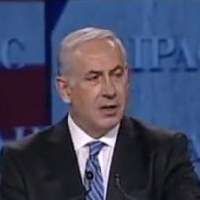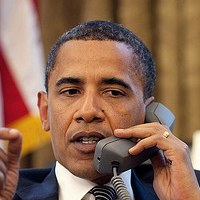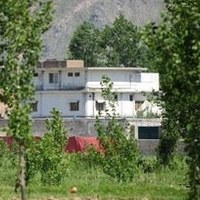![]()
Sun, Jan 30, 2011 | WikiLeaks
WikiLeaks: Egypt’s Bloggers Take on Key Role as Political Activists
Egypt’s bloggers are playing an increasingly important role in broadening the scope of acceptable political and social discourse, and self-expression.
Source: WikiLeaks
C O N F I D E N T I A L
SECTION 01 OF 03 CAIRO 000544
SIPDIS FOR NEA/ELA AND DRL/NESCA NSC FOR PASCUAL AND KUCHTA-HELBLING LONDON FOR SREEBNY
E.O. 12958: DECL: 03/29/2029
TAGS: PGOV, PHUM, KDEM, KIRF, KWMN, SOCI, EG
SUBJECT: BLOGGERS MOVING FROM ACTIVISM TO BROADENING DISCOURSE AND SELF-EXPRESSION
REF: A. CAIRO 468 B. CAIRO 243 C. CAIRO 229 D. CAIRO 152 E. 08 CAIRO 2403 F. 08 CAIRO 1973 G. 08 CAIRO 783 H. 07 CAIRO 3214 I. 06 CAIRO 3161Classified By: DCM Matt Tueller for reason 1.4 (d).
1. KEY POINTS — (C) Egypt’s bloggers are playing an increasingly important role in broadening the scope of acceptable political and social discourse, and self-expression.
— (C) Bloggers’ discussions of sensitive issues, such as sexual harassment, sectarian tension and the military, represent a significant change from five years ago, and have influenced society and the media.
— (C) The role of bloggers as a cohesive activist movement has largely disappeared, due to a more restrictive political climate, GOE counter-measures, and tensions among bloggers.
— (C) However, individual bloggers have continued to work to expose problems such as police brutality and corporate malfeasance.
2. (C) Comment: The government generally allows bloggers wide latitude in posting material critical of the GOE.
Exceptions to this policy are bloggers who directly insult President Mubarak or Islam, and the government has arrested and jailed bloggers who have crossed these red-lines. The GOE has also arrested activists, such as XXXXXXXXXXXX and XXXXXXXXXXXX, who have used blogging to organize and support protests (refs A and C). Activists are increasingly writing blogs to advance their political aims. Contacts accurately point out that bloggers have ceased to function as a cohesive activist movement. It is noteworthy that bloggers did not play a significant role in the most recent example of mass cyber-activism — the April 6, 2008 strike orchestrated through Facebook (ref G).
—————————–
The Current State of Blogging
—————————–
3. (C) Egypt has an estimated 160,000 bloggers who write in Arabic, and sometimes in English, about a wide variety of topics, from social life to politics to literature. One can view posts ranging from videos of alleged police brutality (ref B), to comments about the GOE’s foreign policy, to complaints about separate lines for men and women in government offices distributing drivers’ licenses. One NGO contact estimated for us that a solid majority of bloggers are between 20 and 35 years old, and that about 30 percent of blogs focus on politics. Blogs have spread throughout the population to become vehicles for a wide range of activists, students, journalists and ordinary citizens to express their views on almost any issue they choose. As such, the blogs have significantly broadened the range of topics that Egyptians are able to discuss publicly.
——————————————-
Expanding Discourse and Personal Expression ——————————————-
4. (C) XXXXXXXXXXXX told us that blogging allows Egyptian youth to air their views about social and political issues in ways that were “unimaginable five years ago.” XXXXXXXXXXXX said that blog debates currently cover formerly “taboo” topics, such as Christian-Muslim tensions and the military’s potential role in succession. XXXXXXXXXXXX, a blogger who now concentrates on journalism and film-making, described how bloggers began public discussions of issues, such as sexual harassment and the legal status of Bahai’is, that were previously too sensitive to discuss. XXXXXXXXXXXX attributed the media’s sympathetic treatment of the Bahai’is’ national identification card case in January 2008, in comparison with skeptical media coverage of the issue in 2004, to bloggers’ efforts.
CAIRO 00000544 002 OF 003
5. (C) Two young upper middle-class bloggers told us that expressing themselves on their blogs is a “bright spot” for them in the current atmosphere of political, economic and social malaise. They noted that blogging provides them with an outlet, which they perceive as relatively anonymous, to disseminate criticism. One of them expressed satisfaction over being able to attack the “religious hypocrisy” and the “serious problems” in the society. A third blogger told us that she uses her blog to discuss whatever issues may be bothering her: her views on dysfunction in the Sinai, the prime minister’s latest speech, or the Obama administration’s Middle East diplomacy. She has written critically about issues, such as the XXXXXXXXXXXX (ref F), without any GOE attempts to silence her.
—————————————
Relationship with the Independent Media
—————————————
6. (C) XXXXXXXXXXXX noted that the open atmosphere created by bloggers has positively influenced the independent media, especially satellite television, to discuss sensitive issues such as sexuality and abortion. XXXXXXXXXXXX explained that while bloggers originally pushed the independent press to tackle new issues in 2006, the independent press has now overtaken the blogs in breaking important news. XXXXXXXXXXXX asserted that while bloggers did ground-breaking reporting on sexual assaults in 2006 before the independent press covered the issue, bloggers are now recycling news stories that the independent press breaks. According to XXXXXXXXXXXX, the relationship between bloggers and the independent press has come full circle, as bloggers now depend on the independent press for news.
——————————-
Originally an Activist Movement
——————————-
7. (C) While the voices of individual bloggers are currently making their mark on expanding public discourse and personal expression, bloggers originally saw themselves as a cohesive movement of political activists. XXXXXXXXXXXX, said that in 2006, bloggers with diverse orientations — secular, Islamist, and leftist — worked together to organize events, such as a sit-in protest at the Judges’ Club (ref I) and demonstrations in Tahrir Square. XXXXXXXXXXXX characterized bloggers during this period as activists who worked closely with civil society organizations to raise public awareness of issues, such as sexual assault. Because of bloggers’ independent, relatively anonymous identities, XXXXXXXXXXXX continued, they were able to engage on these issues more freely than NGOs. XXXXXXXXXXXX believes that female bloggers’ personal accounts of being harassed put an important personal face on the problem.
8. (C) Since 2006, XXXXXXXXXXXX said, bloggers have not been able to replicate the same kind of political activism for a number of reasons. He cited growing tensions and divisions within the blogger community, where Islamist bloggers are openly critical of secular and Christian bloggers. As part of the GOE’s increasing crack-down on political reformers since 2005-6, XXXXXXXXXXXX said, State Security (SSIS) began to target bloggers. XXXXXXXXXXXX, and of pressuring western news organizations to dismiss other bloggers who challenged the GOE. XXXXXXXXXXXX noted that many bloggers have abandoned their blogs due to this pressure, and are focusing instead on careers in journalism and civil society.
9. (C) XXXXXXXXXXXX explained that as political activism waned after 2006, bloggers lost their context for advocacy. He concluded that there is currently no political opening for bloggers to push for significant change, and predicted that the next opportunities may be during the 2011 presidential election.
Human rights activist XXXXXXXXXXXX separately echoed XXXXXXXXXXXX’ assessment, opining that there is a current “despondency” among bloggers, whom XXXXXXXXXXXX considers to be part of the broader activist community. XXXXXXXXXXXX asserted that in the current “political stagnation,” bloggers are bereft of compelling and achievable political causes, but XXXXXXXXXXXX predicted they would play a crucial role “during the eventual succession.”
———————————-
Bloggers as Human Rights Activists
CAIRO 00000544 003 OF 003
———————————-
10. (C) While XXXXXXXXXXXX minimizes bloggers’ current impact as activists, veteran civil society advocates view bloggers’
contributions as significant. XXXXXXXXXXXX stressed the importance of bloggers’ concern with torture and press freedom. At a public lecture XXXXXXXXXXXX human rights lawyer XXXXXXXXXXXX lauded XXXXXXXXXXXX for posting an alleged police sodomy video a few days earlier (ref B), and for breaking the El-Kebir police brutality case. In November 2007, a court sentenced two polic officers to three years in prison for assaultin and sodomizing bus driver Imad El-Kebir. The cse gained notoriety after XXXXXXXXXXXX a cell phoe video recording of the attack (ref H).
11. (C XXXXXXXXXXXX cited the “3,000 hits per day” on XXXXXXXXXXXX’ blogas evidence of his influence, asserting that XXXXXXXXXXXX is more widely read than “Rose Al Youssef,” th SSIS-backed daily newspaper. Separately, a human rights lawyer XXXXXXXXXXXX marveled at XXXXXXXXXXXX power to expose police brutality on his blog. Bloggers have also been active on other issues. XXXXXXXXXXXX
SCOBEY



 RSS
RSS












#WikiLeaks: #Egypt's #Bloggers Take on Key Role as Political Activists | #Mubarak #Revolt #US http://j.mp/hJXXI2
RT @CrethiPlethi: #WikiLeaks: #Egypt's #Bloggers Take on Key Role as Political Activists | #Mubarak #Revolt #US http://j.mp/hJXXI2
WikiLeaks: Egypt's Bloggers Take on Key Role as Political …: XXXXXXXXXXXX, a blogger who now concentrates on j… http://bit.ly/iksFev
[…] XXXXXXXXXXXX said that blog debates currently cover formerly “taboo” topics, such as Christian-Muslim tensions and the military’s potential role in succession. XXXXXXXXXXXX, a blogger who now concentrates on journalism and film-making, …christian political blog – Google Blog Search […]